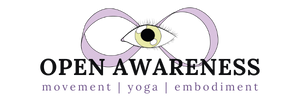12 Sep Stress & Anxiety
Surprised I’m not a chill person?
A couple weeks ago we had some new friends over, friends we met through one of the yoga studios I work at, one of whom is familiar with the De(Stress) class series curriculum I’m bringing to the studio later this year.
At one point, she let a friendly laugh escape when she heard me say “let’s start eating, it’s stressing me out.” Given the relaxing tenor and content of my style of teaching, it surprised her that I was not a super chill, mellow, calm person.
I ended last week’s blog post with a casual admission of my nervous, anxious nature. I mentioned it to explain why I love restorative yoga so much, but the truth is, my anxiousness has driven my entire practice of yoga, the bulk of my curiosity, and the foundation of the practice I teach.
After my new friend mentioned her surprise, I responded by asking “why do you think I teach what I teach?” To get more comfortable in my own skin, to approach the world with healthier coping mechanisms, and to participate with presence, I’ve had to take a deep dive into learning about stress in the body and mind, stress reduction techniques, and find some awesome therapists.
Getting to the bottom of it
I’ve been focused on practicing to reduce my anxiety and stress levels since I got really into yoga in 2014. My first exposure to the concept that yoga could be done so specifically was from Bo Forbes’ book Yoga for Emotional Balance.
From that book on, it feels like the questions of wtf is stress, anxiety, and trauma; and wtf can I do about it, have been the driving force underlying the bulk of what I study and practice. No matter the topic, I’m trying to apply it to de-stressing and decreasing my anxiety. My hunt to understand and practice relaxation continues.
Not a panacea, but important nonetheless!
Knowing I’m so focused on stress, it’ll come as no surprise to you that I feel like stress reduction is a most important component to moving forward in a world of increasingly regular and increasingly dramatic change: environmentally, politically, economically, and personally. If we ever forget that there are big things far out of our control, Mother Nature (including viruses…) reminds us who’s boss.
When our body/brains experience change, they (we) experience stress. Stress is activation, it turns us on to react and respond, to change along with our circumstances. Stress isn’t inherently bad. It’s just that when stress is chronic, and turns into overwhelm, the smart and strategic parts of our brains go offline. We can’t think straight. We can’t listen or express ourselves very well. We certainly can’t plan for the future.
Put very simply, animal-survival-brain mode overrides full-human-brilliant-brain mode, and until we get our stress levels back down, brilliant brain can’t help us.
This is why learning and practicing stress reducing body-based tools are so useful. Brilliant brain can self-talk us out of a freak out. When brilliant brain is not online because we’re overwhelmed, we need another technique. Something more primitive. Something like movement, breathing, or sensory engagement (What can I see? What can I hear? What can I touch?). Like…tools a toddler could use to calm down. Tools animals use to diffuse their own mad dashes for survival.
What about you?
If you think about the things you do for yourself when you feel like you’ve done a good job managing your stress, what are they?
Brilliant brain techniques often work really well. For example, you talk to yourself and say that this is hard now, but it won’t be this way forever. You’ve gotten through worse. You’re doing what you need to. This is tops-down processing, using your brilliant brain ability to think and explain to settle your nerves and move forward.
Do you have any tools you use when brilliant brain isn’t cutting it?
When I’m super overwhelmed and literally can’t think, I’ve learned to make fists and release them. Over and over again until my brain goes “I feel my hands.” It’s a bottoms-up, sensory technique. Sometimes I inhale when I unfurl my fingers and exhale when I make fists. Then I’m engaging my breath, which is a direct route into influencing the nervous system (the mightiest component of stress/relaxation).
Of course, I wouldn’t know to do this if I didn’t practice it when I wasn’t overwhelmed. Coping and thriving take a certain kind of effort, don’t they? Isn’t it worth it?
Let’s practice this stuff
If you’re in Portland, set aside Sunday afternoons in November and come my De(Stress) class series in person. Save the date.
